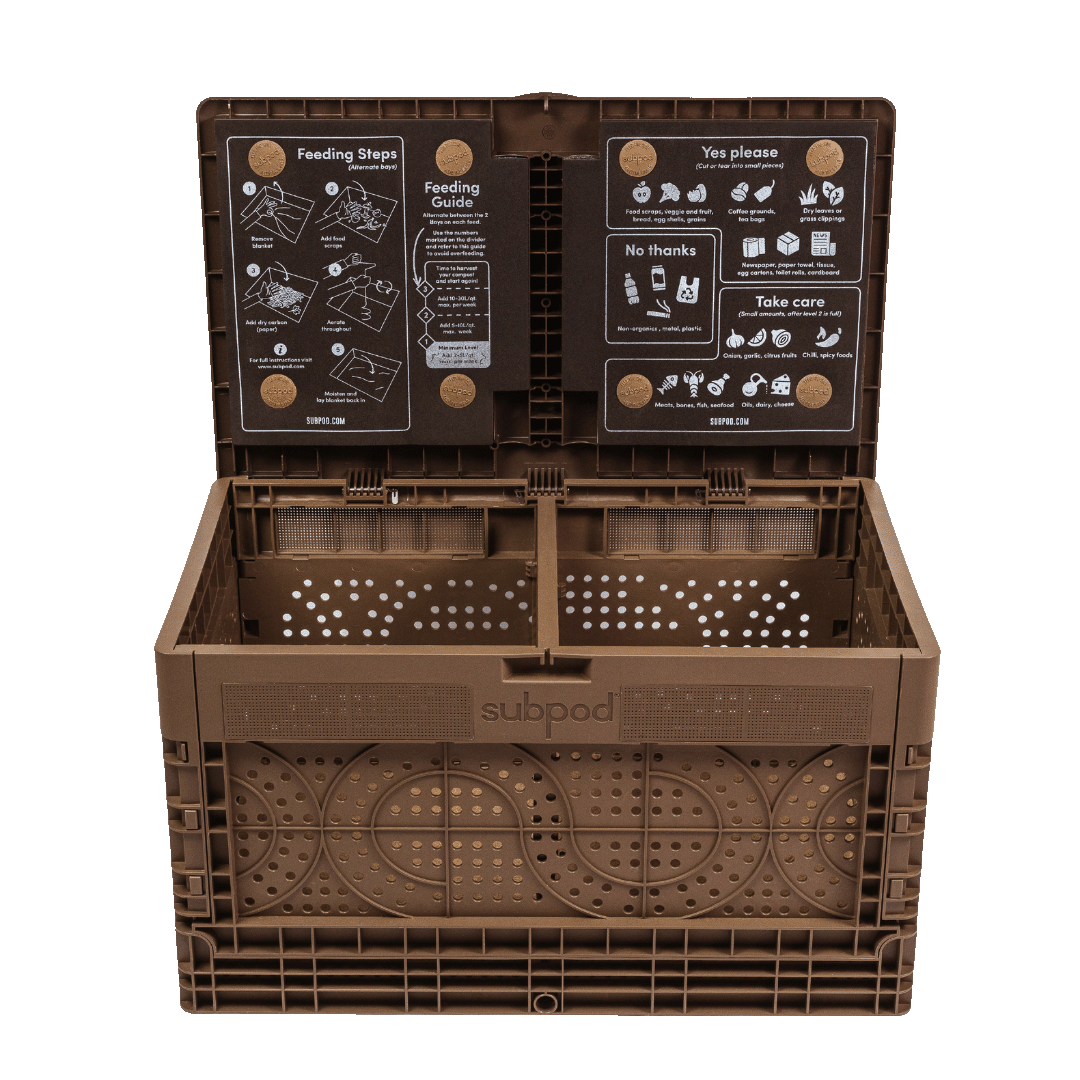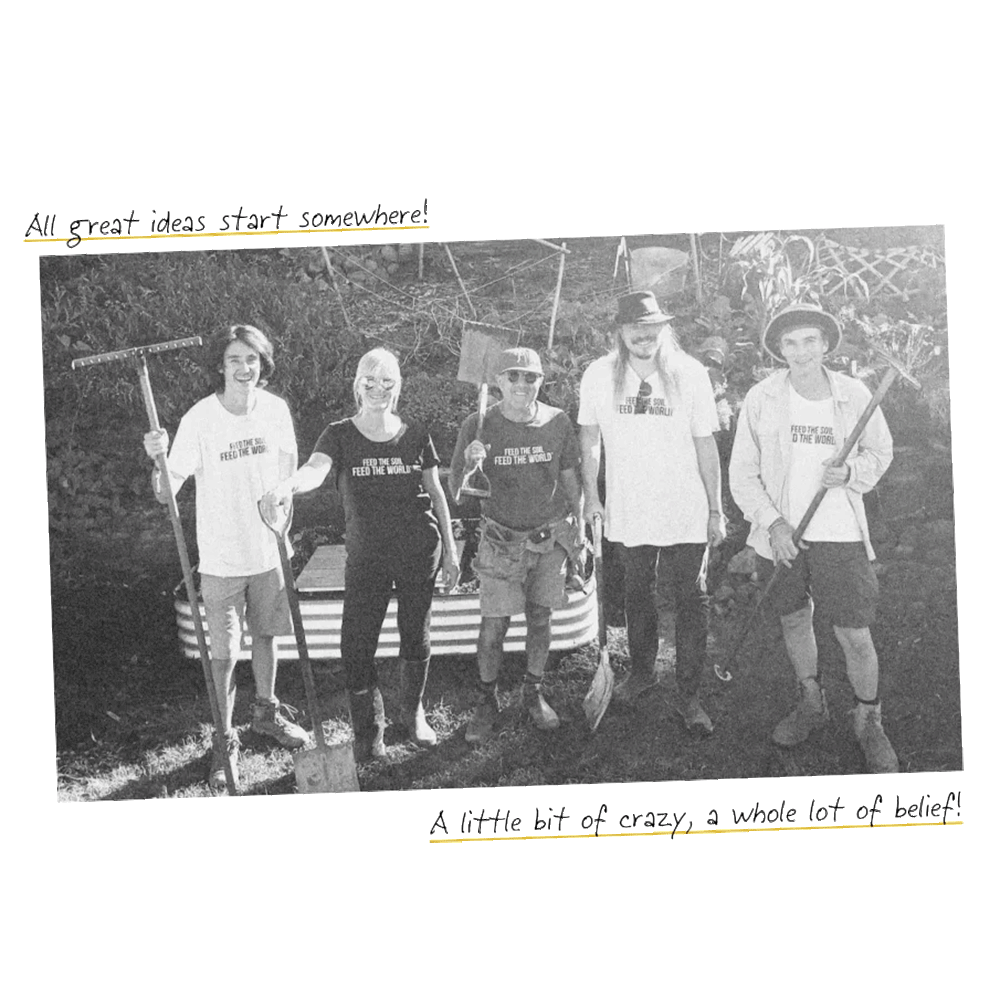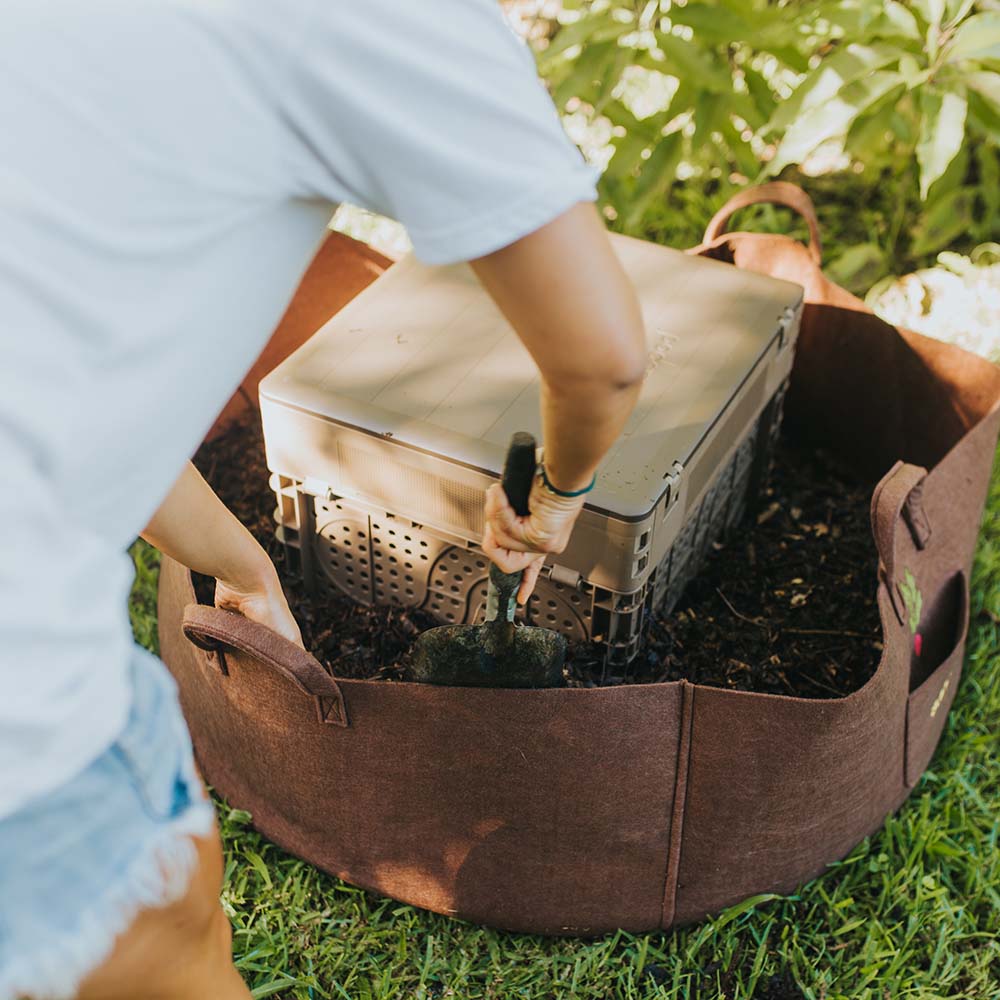In this article:
Banana Peels in Compost: Yes or No?
The humble banana is one of the most prevalent and important fruits around the world, and rightly so! It’s easy to grow, delicious and a great source of nutrition. Bananas are rich in fibre and probably nature’s best source of potassium, which is a vital ingredient in a healthy diet.
So they’re good for humans, but are they good for your garden too? Can the nutritious and delicious array of minerals and nutrients in a banana contribute to a lush and fertile backyard, just as they do to a healthy human?
Today we’re going to find out all about banana peels in compost- do they belong there, do they help your garden, should you be composting them? Let’s get started!
Can You Compost Bananas?
Composting is the natural process where organic waste (such as the food waste coming out of your kitchen) is broken down into a rich, humus-like organic fertiliser. It’s been going on for centuries in the natural world, and it’s something that you can do today in your own backyard.
Composting is becoming more important because of its role in environmental sustainability. When our organic food waste goes to landfill, it decomposes very slowly, adding the harmful gas methane into the environment in the process. Methane is 25-times more potent than Carbon Dioxide, and a massive contributor to global warming!
When you compost your food scraps, you’re keeping them out of landfill and preventing methane from entering the atmosphere. Plus, the compost you create is going to give your garden a huge boost in fertility! It provides an array of nutrients to your plants, while building up the quality of your soil and helping keep pests and diseases away.
Back to the question, can you compost banana peels? Yes, you definitely can. Bananas are organic matter and so are their peels, so feel free to include these in your compost materials. Your garden and the environment will thank you!

Why are Banana Peels Good for Compost?
Let’s think of all the nutrients contained in bananas. There’s potassium, magnesium, sulphur, phosphates, vitamin B6, and vitamin C, plus a whole bunch of phytonutrients and antioxidants. That’s a lot of goodness in a single fruit! The good news is they’re all important to the growth and development of all types of plants, whether flowering or fruiting.When you compost your banana peels, these nutrients become part of the compost, available to all plants it's applied to. The peels will also contribute to the healthy organic structure of the compost, which positively affects the soil around the plants.
You can’t go wrong with tossing your bananas into the compost bin. But to compost properly, you need to understand ‘greens’ and ‘browns’ correctly.
Are Banana Peels Considered to be ‘Green’ or ‘Brown’?
Experienced composters will know all about greens and browns, but if you’re just starting out on this eco-friendly journey you may not be familiar with them. It’s an important concept to grasp, so we’ll break it down in a simple way for you here.
When it comes to composting, all organic material is divided into greens and browns. Greens are nitrogen-rich and generally a bit wetter, and would include most of the organic waste that comes out of your kitchen. Freshly mowed grass or recently pulled weeds are also greens, as are your used coffee grounds.
Brown materials are drier than greens, and you’ll find they’re usually brown in colour. Unlike greens, browns are high in carbon content. Carbon is a source of food for the soil dwelling micro-organisms in your compost bin. Cardboard? Its a brown. Paper, sawdust, dried leaves? All browns.
What’s the big deal with greens and browns, you might ask? Well, they both need to be present in your compost bin, usually in a ratio of around two to three parts brown to one part green. The browns help give your compost structure, aerating it and giving the worms and microbes space to work. If you only applied greens your compost would become too moist and dense.
Are banana peels considered green or brown? They have a high nitrogen content, so are considered to be ‘green’. If you’re composting a lot of banana peels at once, you’ll need to be sure to add some browns into the mix too. This will help optimise the moisture levels and structure.

How to Compost Banana Peels?
We’ve established that banana peels are definitely compostable, now let’s talk about the right way to go about composting them. To be honest, it’s not that hard. If you use a vermicomposting system like Subpod, you could throw your banana peels in and the worms and microbes would take care of them for you.
There are ways to help them speed up the process though. One thing we recommend with all food waste going into compost is to cut it up into smaller pieces. This presents more surface area for the worms and microbes to work on, which helps transform the food waste faster. So if you’ve got a bit of extra time at the end of the day, get out the chopping board and slice those banana peels up before they go into your compost bin!
Another tip is to bury the banana peels into the top level of matter in your bin. This makes them more accessible for the worms and microbes and will give the process a kickstart. Mixing them in and aerating your compost will improve its structure and provide the necessary air channels to facilitate the process too.
As we spoke about above, make sure you have a balance of carbon-rich ‘brown’ material going in with your banana peels, as this will balance out the moisture content and improve the structure within your bin.
Can I Use Banana Peels as a Direct Fertiliser?
Bananas tend to decompose quickly, so people often ask if they can’t just be directly applied to the soil in a garden. You can do this, but it’s a much better option to compost your banana peels than to apply them directly to your garden. For a start, the soil in your garden might not be properly aerated, in which case the decomposition of the peels will take a long time, sometimes up to two years.
Plants do better with a well-balanced set of nutrients that are evenly available throughout the soil. They will get this from compost, but they won’t get it from peels buried directly into the soil. You may also get pests and wildlife searching for food and digging up the banana peels out of your garden!
For these reasons, we’d recommend composting your banana peels rather than applying them directly to your plants.
Can I Compost Rotten Bananas?
Yes, you can compost rotten bananas. They are already starting to decompose, so it won’t be long before they turn into rich, dark compost once you place them in your compost bin. Remember to dig your rotting bananas into the compost, to contain the scent and put off any marauding pests.
One thing to check for is whether your bananas are disease-free when they go into your compost bin. Naturally rotting bananas are ok, but if they’re afflicted with some kind of disease you don’t want to spread that through the compost to other plants!
Compost your Banana Peels with Subpod
Are you a beginner composter, or a learned professional looking for an easier, more efficient way of fighting food waste? You need to check out Subpod, the vermicomposting system that will turn your banana peels and other organic waste into the dark, humus-like compost often referred to by gardeners as ‘black gold’.
Subpod is a stylish compost bin that sits submerged in a garden bed, with the lid protruding out of the surface. Inside it lives a colony of worms and microbes, who can move in and out of the surrounding garden bed through strategic ‘worm flow’ holes. You open up the lid of the Subpod and place your organic waste into it, whereupon the hungry worms go to work. Organic kitchen waste goes in, black gold compost comes out!
Made to be robust and durable, Subpod is designed to be pest and smell resistant. Odours stay in, and rats stay out! This makes it very neighbourhood friendly - in fact, you’ll probably win a few friends over if you share your compost with them!
Since launching our first Subpod in 2020, we’ve shipped more than 60,000 of them to composters in 26 countries around the world. The backbone of Subpod is the community, and we love that so many people have jumped on board to feed the soil, feed the world and do what they can for environmental sustainability.
There are thousands of beginner and expert composters over at GrowHub, where all your questions about Subpod and composting will be answered. Why not head on over and sign up? If you have any more queries about composting banana peels, someone there will be able to answer them!






Leave a comment
This site is protected by hCaptcha and the hCaptcha Privacy Policy and Terms of Service apply.